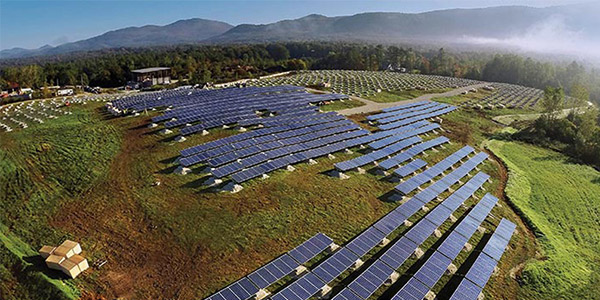FERC on Tuesday accepted most provisions in ISO-NE’s second compliance filing for Order 841, which requires RTO market participation rules to recognize the unique physical and operational characteristics of storage resources.
The changes become effective Dec. 3, 2019, with a limited number of revisions becoming effective Jan. 1, 2026, subject to further compliance filings (ER19-470-004).
The commission in December found ISO-NE had failed to comply with requirements to account for maximum run time, maximum charge time, state of charge, maximum state of charge and minimum state of charge (collectively, state of charge and duration characteristics) of electric storage resources in the day-ahead market. It required the RTO to modify its participation model through bidding parameters or other means.
FERC in April denied a rehearing request on the same issue. (See ISO-NE Order 841 Rehearing Request Denied.) In Tuesday’s order, the commission accepted most of ISO-NE’s revisions around the issue but found the RTO still didn’t go far enough.
“We find that, while ISO-NE’s proposed revisions state that it will account for such characteristics in the day-ahead market through bidding parameters or other means, ISO-NE has failed to propose any bidding parameters or other means through which it will do so,” the commission said.
“If ISO-NE intends to rely on new bidding parameters, it must define those bidding parameters in its Tariff and explain in its transmittal how those bidding parameters will be incorporated into its day-ahead market engine,” the commission said, directing the RTO to file such revisions within one year.
The commission also rejected ISO-NE’s response to direction that it file Tariff revisions that apply transmission charges to an electric storage resource when that resource is charging for later resale in wholesale markets and is not providing a service, and to include a basic description of ISO-NE’s metering methodology and accounting practices for ESRs.
“We disagree with ISO-NE’s statement that electric storage resources will always be providing a service when charging for later resale in the wholesale markets,” the commission said. “Specifically, we find that ISO-NE has failed to demonstrate that an electric storage resource that is self-scheduled to charge at a fixed MW quantity is providing a service that warrants exempting its full self-scheduled charging MW from transmission charges.”
The commission directed ISO-NE to file within 90 days Tariff revisions specifying that it will not apply transmission charges to ESRs when they are dispatched to withdraw energy to provide voltage support and reactive control, provide operating reserves, provide regulation, balance energy supply and demand on an economic basis or address a reliability concern, but it will apply transmission charges to ESRs when they are not being dispatched to provide one of those tariff-defined services.
The commission also directed the RTO to modify Tariff language that “could effectively allow the host utility to decide whether an electric storage resource may participate in the ISO-NE markets by stating that an electric storage resource cannot qualify to participate if the host utility is unwilling or unable to support the necessary registration, metering and accounting of the electric storage resource. This language may create a barrier to the wholesale participation of electric storage resources and may therefore be inconsistent with Order Nos. 841 and 841-A.”




